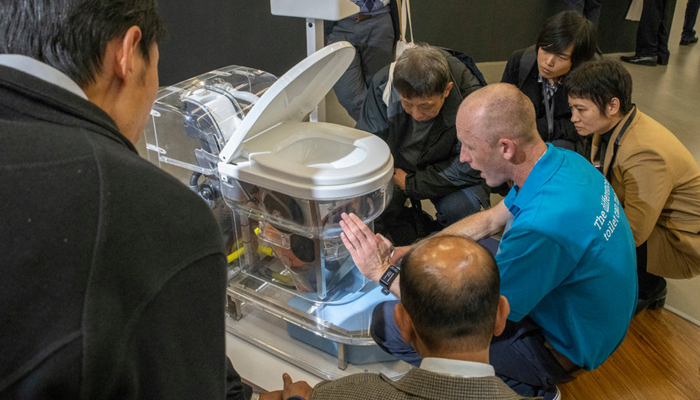TRENDING TAGS :
Bill Gates Big Leap from Windows to Toilets!
- Gates Foundation Eye Massive Market in Sanitation - 62 Billion Dollar Sanitation Economy In India By 2021
Neel Mani Lal/ Yogesh Mishra
Lucknow: Bill Gates is now eyeing a new business – Toilets! Having a near monopoly in computer’s operating systems worldwide, he is now jumped into building innovative toilets that are not only super eco-friendly but also have potential of great money spinners. The reason of Gates interest in toilets is simple; the sanitation economy is a 32 Billion US Dollar per year market in India only and is set to double to an estimated 62 Billion Dollar by 2021.
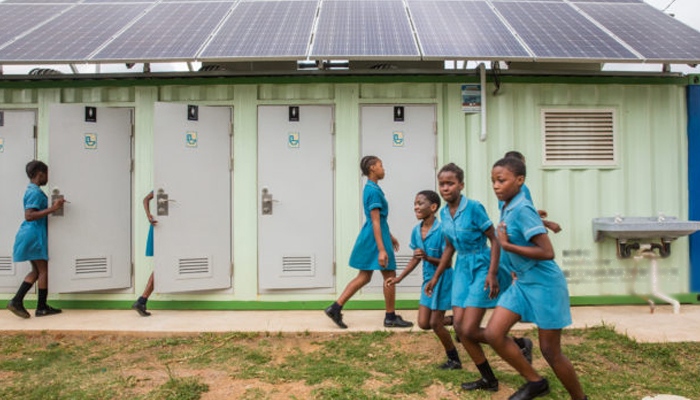
Bill Gates, who kicked off a three-day "Reinvented Toilet" expo in China, said that unsafe disposal of human waste and improper sanitation kill over 500,000 people every year. This problem costs $223 billion year globally. India alone took loan of $1.5 billion for the Swachh Bharat Mission Support Operation Project and a $0.5 billion loan is in the offing. Bill Gates surprised and shocked many when he walked on stage for a speech during expo, brandishing a jar of human excrement. This unusual gesture amazed people worldwide but this was part of the Gates' foray into business of 'reinvented toilets'.
ALSO READ: Over 50 countries to take up water sanitation, hygiene practices
The Bill and Melinda Gates Foundation has invested over $200 million over seven years to create a "pathogen-killing" toilet that can break down human waste and destroy germs. The new toilet leave behind clean water and solids that can be used as fertilizer, or disposed of safely outdoors without further treatment besides producing essential proteins for consumption, Gates claimed.
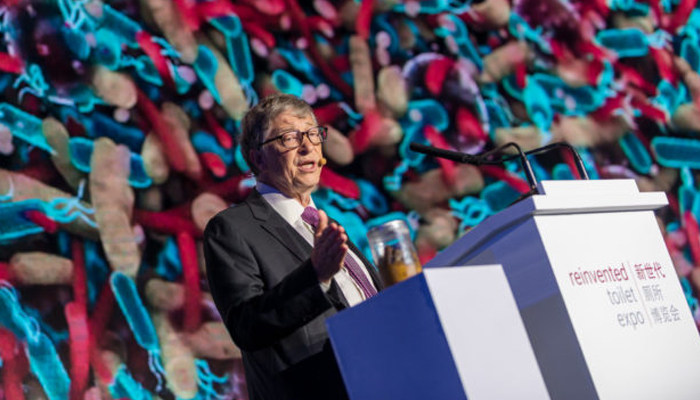
The toilet would cost around Rs 7 lakh initially but if manufactured in bulk; it would cost just Rs 35,000 a piece. These toilets don’t need water and also comes with a smell-blocker that is manufactured by Gates Foundation in association with Swiss company ‘Firmenich’, which is into business of fragrance and flavor.
ALSO READ: Women’s toilet in Mumbai station step to safe sanitation: Sonam
Gates Riches
Bill Gates, the world’s second richest person on earth, has movable and immovable assets worth Dollar 95.7 billion ($95.7B). Gates earned Dollar 110.36 Billion from its software business. Gates has sold or given away much of his stake in Microsoft -- he owns just over 1% of shares --and invested in a mix of stocks and other assets.
Sanitation in India
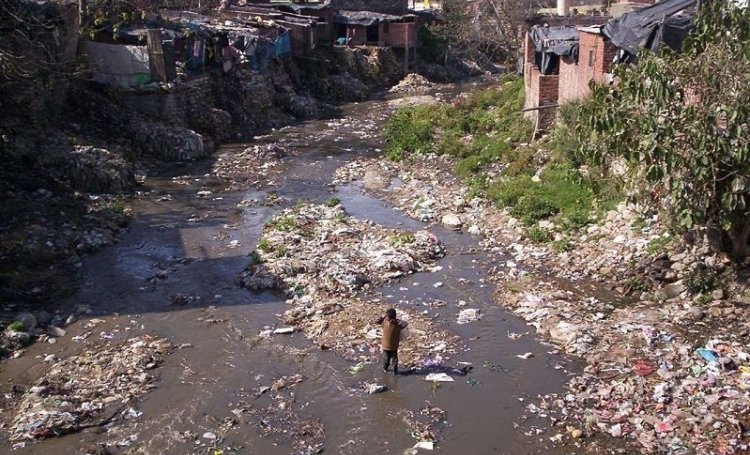
In India, childhood diarrheal disease remains a major health issue resulting into killing of over a 100 thousand children each year. Diarrhea can be prevented with use of safe drinking water, hand-washing, sanitation, immunization and breastfeeding / appropriate nutrition. A survey reveals that 90 per cent children did not get pure drinking water. 43 out of every 1000 kids die in first year of their birth.
Swachh Bharat Mission
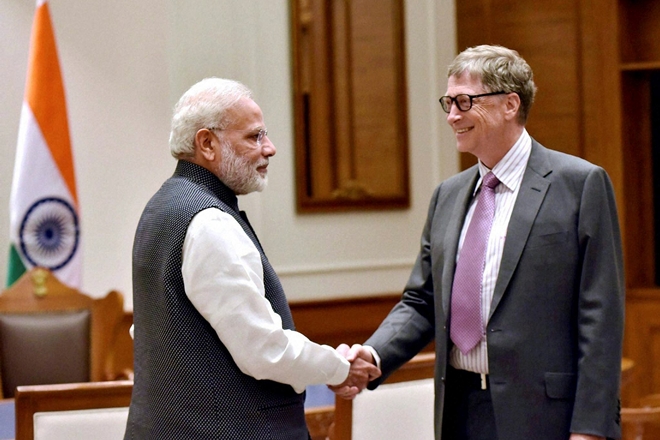
The Modi government has launched a ambitious plan to abolish open defecation in the country by the year 2019. The government has been successful in making 11 states and union territories (UTs) open defecation free (ODF) under Swachh Bharat Mission (SBM).
Parameswaran Iyer, who is leading the Swachh Bharat Mission and the National Rural Drinking Water Program, said that over 4.5 lakh villages, 450 districts, 20 states are open defecation free. He claims that 84 million toilets have been successfully installed in India.
Innovative Toilets
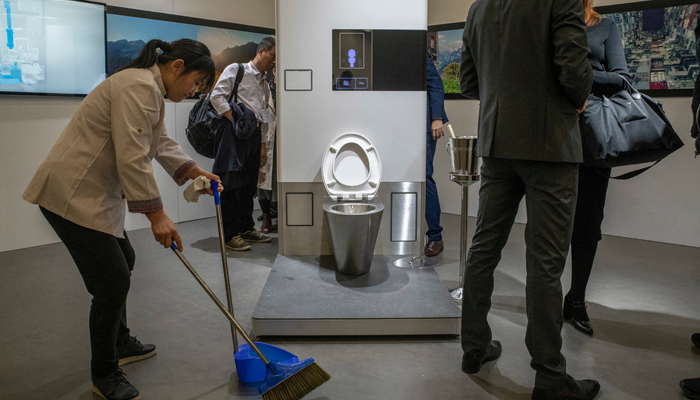
Gates Foundation has committed 200 Million Dollars to the toilet project and Gates announced in Beijing that he will be dedicating 200 Million more for the purpose. The next step for the project is to pitch the concept to the manufacturers. The Foundation has invested in 20 toilet technologies it now deem ready for widespread use. The first version on sale will be multi unit public toilets which could replace the community toilets common in slum areas. Chinese companies may become the first mass producers selling mostly in India and China. In China, Gates Foundation will replace 64 thousand old toilets with its new reinvented toilets by the year 2020.
ALSO READ: 87% Indians worry about non-recyclable waste’s impact on environment
The Microsoft owner is influenced by Prime Minister Narendra Modi's Swachh Bharat Mission and he has keen interest in lending a helping hand. Government data says that Swachh Bharat Mission has widely affected people in making India open defecation free.
In 2011, the Water, Sanitation & Hygiene program initiated the Reinvent the Toilet Challenge to generate and support new approaches for toilet technologies that safely and effective manage human waste.
The Reinvent Toilet Challenge aimed to create a toilet that:
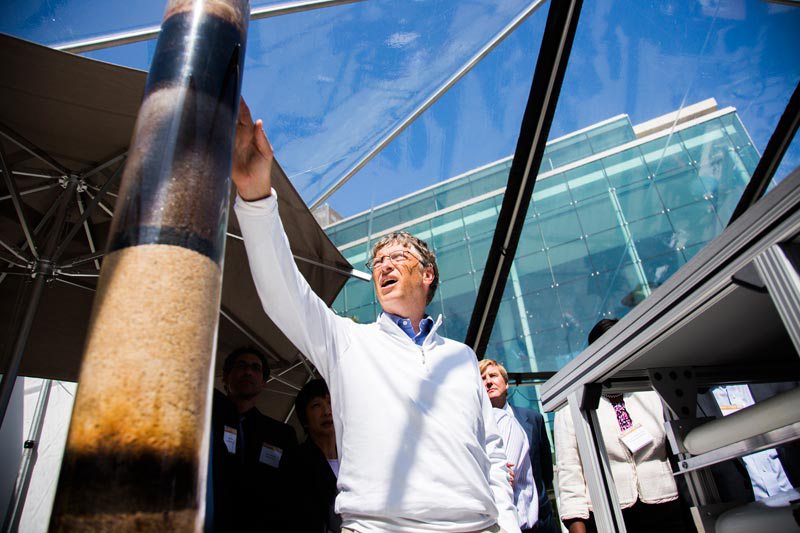
-Removes germs from human waste and recovers valuable resources such as energy, clean water, and nutrients.
-Operates “off the grid” without connections to water, sewer, or electrical lines.
-Promotes sustainable and financially profitable sanitation services and businesses that operate in poor, urban settings.
-Is a truly inspirational next-generation product that everyone will want to use in developed as well as developing nations.
In India these toilets will help in
-Reduction of maternal and child mortality
-Scientific and technical solutions for infectious diseases
-Strengthening India’s scientific translation capacity
-Scientific and technical advances related to agriculture
-Scientific advancement in food and nutrition
-Generating electricity
Gates and India
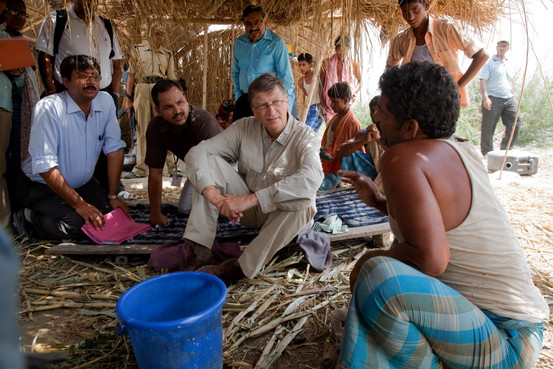
In October 2013, the Department of Biotechnology (DBT) under the Ministry of Science and Technology of the Government of India and the Bill & Melinda Gates Foundation, in collaboration with India’s Biotechnology Industry Research Assistance Council (BIRAC), launched the Reinvent the Toilet Challenge: India. In March 2014, a second Reinvent the Toilet Fair was held in New Delhi, India, co-hosted by the Government of India’s Department of Biotechnology and the Bill & Melinda Gates Foundation, with the support of India’s Ministry of Urban Development.
ALSO READ: World Environment Day: 10 Small steps to reduce plastic pollution
Gates Foundation is of a belief that every year six lakh people die of diseases, the cause of which is lack of cleanliness and sanitation. India faces a loss of 6 percent in the GDP due to sanitation flaws. 25 percent girls have to quit school every year due to shortage of toilets. India incurs a loss of Dollar 106 billion per annum due to sanitation problems.
According to data, three out of every ten people have 'zero' access to toilets, making this figure as large as 732 million. The report by Water Aid, titled Out Of Order: The State of the World’s Toilets 2017, further stated that 355 million women and girls lack access to a toilet. If they were to stand in a line, the queue could circle the Earth more than four times. Globally, 61 percent people lack access to proper sanitation facilities. 892 million people across the globe pee in open.
Reinvent Toilet is Big Business Opportunity
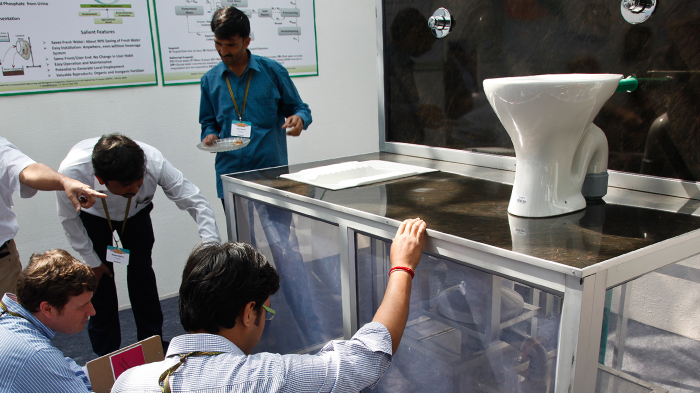
Three years back, the social investors, various companies, social workers, sanitation experts and Non Profit Organizations jointly formed Toilet Board Coalition (TBC). The main of the organization was to bring a business view, approach and new solutions to the global sanitation crisis and aims to bring speed and scale to promising business models that will help us to achieve universal access to sanitation before 2030.
Sanitation business is not limited to building toilets but it also includes toilet fittings, waste management, smart technology and data collection. Executive Director of TBC, Cheryl Hicks feels that this is the most appropriate time to transform sanitation programme into smart economy.
Reinvent the Toilet Challenge
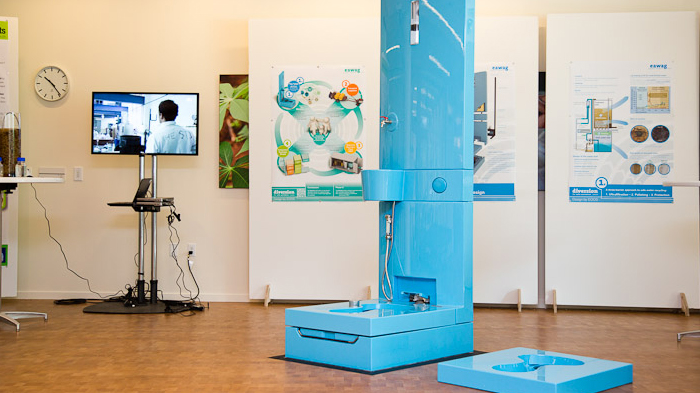
-In 2011, the Water, Sanitation & Hygiene program initiated the Reinvent the Toilet Challenge to generate and support new approaches for toilet technologies that safely and effective manage human waste.
-Reinvented toilets can be installed anywhere, including in crowded urban areas. New sanitation solutions can work in regions that are flood-prone, or land, water, or money-poor.
-Sanitation has diversified beyond sewers, giving people and cities flexible new options.
-In August 2012, the Bill & Melinda Gates Foundation hosted a two-day Reinvent the Toilet Fair at the foundation’s headquarters in Seattle, Washington
ALSO READ: India among worst hit as pollution gets deadlier than wars, AIDS
-In August 2013, the foundation announced the Reinvent the Toilet Challenge: China. The foundation invested US$5 million to support Chinese investigators to drive research, development, and production of the “next generation toilet.”
-In October 2013, the Department of Biotechnology (DBT) under the Ministry of Science and Technology of the Government of India and the Bill & Melinda Gates Foundation, in collaboration with India’s Biotechnology Industry Research Assistance Council (BIRAC), launched the Reinvent the Toilet Challenge: India.
-In March 2014, a second Reinvent the Toilet Fair was held in New Delhi.

